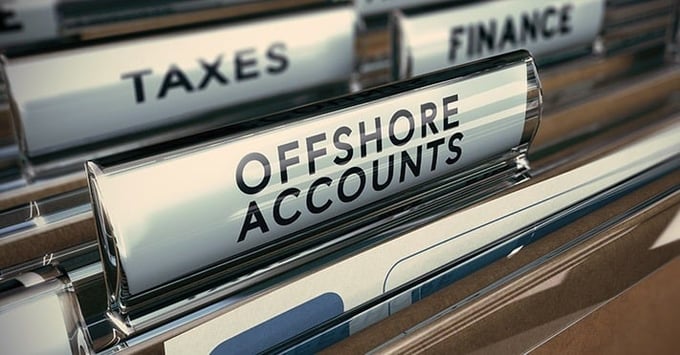Step-by-Step Guide to Effective Offshore Company Formation
The development of an offshore firm is a nuanced procedure that requires careful factor to consider of different elements to make certain success. Recognizing the advantages of overseas registration, selecting a suitable territory, and diligently preparing the essential documents are important actions in this journey.
Understand Offshore Firm Perks
Recognizing the advantages of overseas business formation is vital for entrepreneurs seeking to enhance their organization procedures. Offshore entities can safeguard individual and company properties from potential legal cases, lenders, and political instability in the business owner's home country.
Furthermore, overseas companies usually take pleasure in favorable tax regimens. Lots of jurisdictions use reduced or zero corporate tax obligation rates, which can dramatically enhance earnings margins and reinvestment capacities. By purposefully taking care of tax obligation obligations, entrepreneur can funnel resources into development and expansion.

An additional advantage is increased privacy and discretion. Offshore jurisdictions generally have rigorous personal privacy laws, which can shield delicate business details and individual information from public examination. This element is specifically eye-catching for business owners that value discernment in their financial affairs.
In addition, overseas firm formation can facilitate international organization operations. It permits simpler access to global markets and enhances credibility with worldwide partners. By leveraging these advantages, business owners can strategically position their companies for lasting success and affordable benefit in the international marketplace.
Select the Right Jurisdiction
When selecting the ideal jurisdiction for offshore company formation, numerous vital aspects should be considered to ensure placement with your business objectives. The initial facet to assess is the regulative environment; territories with well-established lawful structures give better protection and predictability for your service operations.
Different jurisdictions offer differing tax obligation benefits, consisting of reduced or zero tax rates for overseas business, which can substantially improve productivity. Furthermore, take into consideration the political security and financial conditions of the territory.
An additional vital variable is the simplicity of operating, that includes the effectiveness of the enrollment process, continuous compliance requirements, and the schedule of specialist services such as lawful and accountancy support. Evaluate the track record of the jurisdiction, as some might be seen a lot more favorably than others, influencing your company's credibility with investors and clients.
Last but not least, think about the certain sector regulations that might influence your organization. By meticulously examining these factors, you can make an informed decision on the very best territory for your offshore firm formation.
Prepare Required Documents
Preparing the called for documents is a critical action in the overseas company development procedure. This stage includes gathering and organizing various legal documents that will sustain the facility of your overseas entity. The details requirements can vary based on the chosen territory, but there prevail papers typically required throughout most areas.
To start with, you will certainly require to supply evidence of identity, such as legitimate tickets or government-issued identification for all supervisors and shareholders. In addition, you may be required to submit proof of address, such as energy expenses or financial institution statements, which should not be older than three months.
In addition, a comprehensive service plan outlining the purposes, functional framework, and intended click for info tasks of the overseas business may be needed to demonstrate legitimacy and purpose. Relying on the jurisdiction, you might likewise require to prepare a memorandum and write-ups of organization, which act as the fundamental files of the firm.
Engaging a certified overseas service supplier can substantially simplify this procedure by ensuring that all documents is total and certified with regional laws, minimizing prospective delays in your company formation.
Full the Registration Refine
To finish the enrollment procedure for your overseas firm, it is important to send the prepared paperwork to the suitable regulative authority in your chosen territory. This action notes page a vital stage in establishing your company and requires precise focus to detail.
Begin by putting together all needed forms, including the application for consolidation, memorandum and articles of organization, and any type of identification documents for the directors and investors - offshore company formation. Make sure that all files abide with local regulations and are properly filled in to avoid delays
When your documentation is put together, submit it along with the called for fees, which can differ by jurisdiction. Some authorities might permit on-line submissions, while others need physical delivery. Be conscious of any type of extra requirements, such as registration or legalisation of records, which might be needed depending on local laws.
Upon submission, the regulative authority will certainly examine your application. This process may take a number of days to weeks, relying on the territory and the complexity of your application. When approved, you will certainly obtain a certificate of incorporation, officially developing your offshore business and allowing you to wage essential functional steps.
Manage Compliance and Reporting
Browsing the complexities of compliance and coverage is crucial for the durability and success of your overseas firm. Conformity entails adhering to the lawful requirements of the territory in which your offshore entity is signed up, while reporting pertains to the prompt submission of needed paperwork to regulatory authorities.

Moreover, maintaining transparent documents is vital. This includes economic declarations, minutes of conferences, and documentation of substantial service activities. Regular audits can likewise be valuable in recognizing possible conformity concerns beforehand.
Additionally, remaining informed about changes in legislation or regulative methods is essential. Jurisdictions frequently upgrade their compliance frameworks, and timely adjustment is crucial her comment is here to preventing charges or lawful problems.
Conclusion
